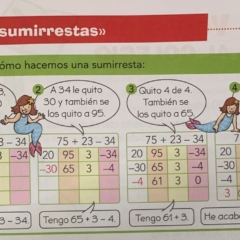When to move to Spain?

When to move to Spain? Does it really matter? Well, it does. A lot of thought is due when preparing to move to a new country, and specifically to Spain, one item to consider is what part of the year would be best for you to move. It involves a bit of strategy. Here are a few things to keep in mind to help you decide when to move to Spain:
Consider the Spanish school year
For people moving in with kids and aiming to put them in a public school, keep in mind that even though the school year goes from September to June, the enrolling process for the public schools happens in March (in Andalusia; other areas of Spain may have it different, but it tends to be in the beginning of the year as well). I know many people that managed to enroll their kids on different months when they arrived in Spain, but in all cases, they needed to have the Padrón, which in turn requires one to have their permanent accommodation figured out; this can take months.
This means that kids moving to Spain will usually need to go to private school before being enrolled in the public school; it’s either that or skipping some two months of school. Private schools usually accept students all year long, provided that they have a free spot in the adequate school grade, but it is advisable to choose and check ahead, by phone or e-mail, before making the move.
You may feel tempted to move to Spain right after the end of the school year where you currently live, which would mean the end of June (if you live in the northern hemisphere), but there are struggles associated with that time, as we’ll see in the next topic.
Do not move to Spain during summer
Spain is a huge summer destination; pretty much all of Europe come enjoy the sun in the sunniest time possible, and Spanish people take their vacations on this time too. This means that accommodation prices are through the roof and services, such as real state agencies, public services and notaries are all happening at a slower pace, as the workers are on vacation, enjoying the beach right next to you. It is harder to book a time to make a document during summer than on any of the rest of the year.
It will also be difficult to find accommodation for 2 or 3 months, as temporary homes are all rented by week or days during summer. Moving to Spain at this time would probably limit your choice of vacation rentals for your initial days in Spain: either you would jump from one rental to the next every few days or you would stay far from the center, which means you would be far from the public transportation at a time you need to go to many places to deal with documents.
It is best to avoid moving between June and August; moving after the school year starts (around September 10) is ok, October is better.
Neither close to the end of the year holidays
The two last weeks of the year may be a bit like summer, in that they are busy times, with few accommodations available and slow work procedures. Best to avoid moving in during this period, or through the whole of December, as inevitably you will stumble on the holidays before you are all set.
Taxes differ depending on when you move to Spain
Another important topic is the taxes. You are supposed to pay income taxes in Spain if you spend more than 183 in a calendar year in Spain, consecutive or not. This means you are taxable if you arrive to Spain for the first time in a given year on or before July second but, just as a precaution, let’s make it not before July 5th, ok? Just to make sure.
Anytime later and you are good to go; you will have to pay your taxes for that year in your country of origin, but not in Spain yet. It is recommendable to verify this information with a Spanish accountant, as rules may change and there may be some catch I’m unaware of. You should also check the rules in your country of origin, to avoid having to pay taxes in two countries for that year.
Keep in mind that the systems in place to avoid double taxation work in a way that you present your taxes to both countries and simply discount what you paid to one from the other – you still must present taxes in both countries and will end up paying the amount required by the country that charges more. Therefore, if you can avoid this hassle in your first year and give you time to find a good accountant, this could be a good way to go.
Conclusion
In my opinion the best time to come would be either in October – after summer; no taxes due, low accommodation prices – or in January – after holidays; taxes for the year are due in Spain but not in (most of) the countries of origin; lowest prices on hotels or vacation rentals and good time for school procedures. If school is not a concern for you, then February, March and April are also good, but from May on it starts getting a bit close to summer, and you may face summer blockages. On a personal note, our family moved in January, and our Kiddo went to a private school during the first semester we were in Spain.
Final tip: once you know when you want to come to Spain, you are good to buy your tickets. If there will be more than one flight, choose flights that have an interval of at least two hours between them. This is particularly important when you are going through immigration between those flights, as it is time-consuming. Shorter flight intervals also leave less time for your luggage to be transferred from one plane to the other – remember there are several luggage pieces changing airplanes at the same time (how do they do it? Thank you, luggage teams at airports, you do magic!)








